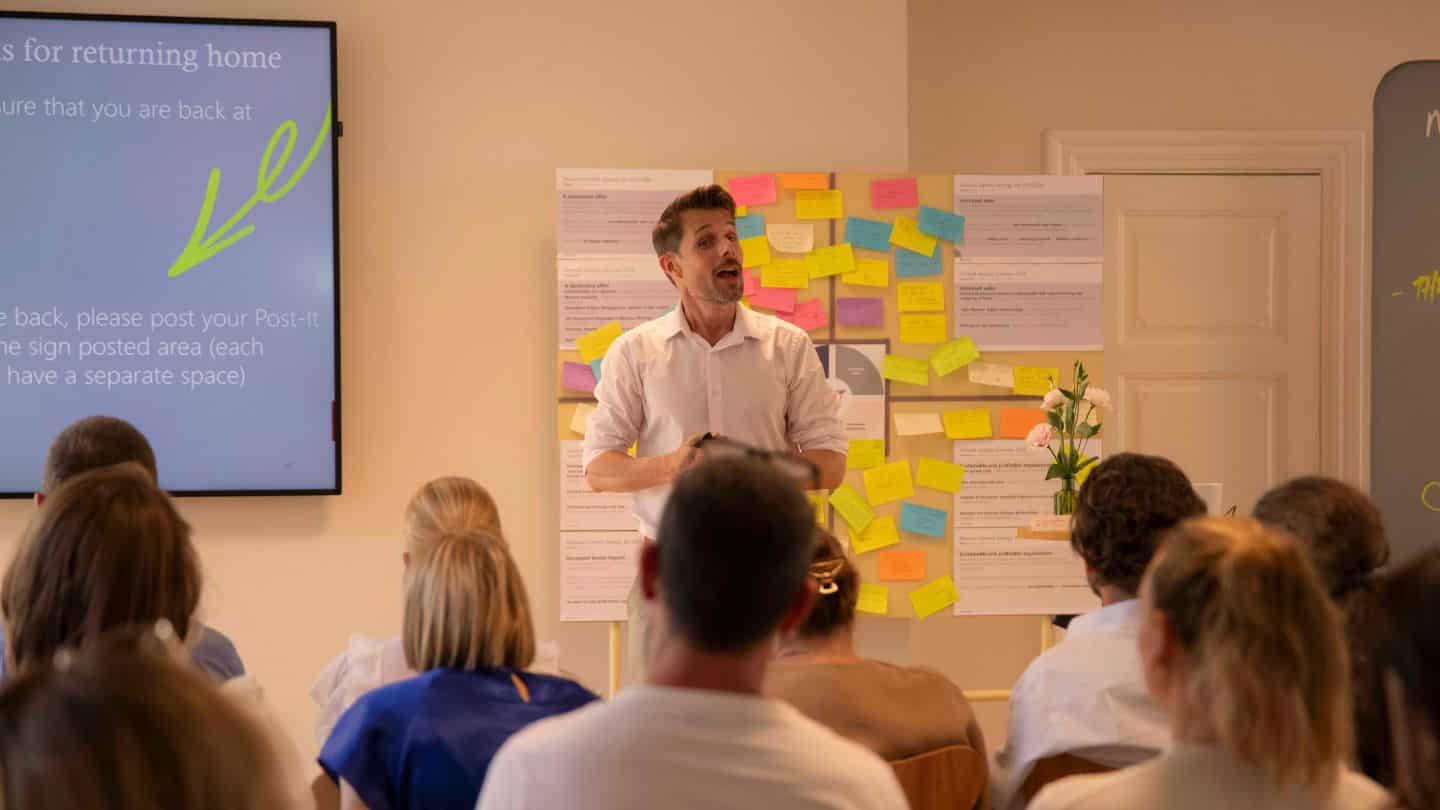7 May 2024
By Stuart Schofield

When we exchange feedback, the stakes can often feel remarkably high. In telling people what we need from them we are almost always experiencing some form of risk. And when we receive feedback from others, especially those we admire or trust, we can sometimes find ourselves in a uniquely vulnerable position.
No wonder we spend a lot of time thinking about feedback – How we might deliver it and what it’s impact might be.
If feedback does indeed represent a flashpoint in our relationships, we are understandably keen to ensure that the benefits of demonstrating this kind of honesty outweigh the costs. After all, whilst here is almost always some risk of misunderstanding or conflict, might there also be a valuable opportunity for deeper trust and connection?
These contrasting outcomes have long been recognised in the various therapeutic professions. Couples’ counsellors are keenly aware of what can happen to a relationship when feedback is delivered ineffectively, insensitively, or not given at all.
Professor John Gottman is responsible for perhaps the largest treasure trove of research into how couples communicate. A famous psychologist, professor, and author, Gottman has spent decades in laboratory settings observing hundreds of real couples interacting with each other.
On the back of this research, he has developed some startlingly effective tools for building robust relationships*. Unsurprisingly, he also has developed some highly usable and scientifically sound tips for giving feedback. On inspection, it’s clear that these tips can be applied to any relationship – even within a work context – as a way of helping to strengthen trust and cooperation.
One of the most effective tips that Gottman offers us for giving feedback is that of the ‘Soft Start-Up’.
According to Gottman, the biggest mistake that most of us make when giving feedback is that we make our introductory statements (the ‘start-up’) too harsh. In other words, we are too direct, too cutting or not sufficiently empathic when we ‘start up’ the feedback discussion.
However, there are some comparatively easy ways to ‘soften’ our start up and each of the strategies below can be good ‘reminders’ for all of us:
Just a moment’s worth of reflection and we quickly recognise how applicable these ‘soft start-up’ strategies can be in our working life.
In fact, colleagues may need to be especially mindful of the ‘soft start-up’ approach given how pressured, focused and task-oriented work can sometimes be. Arguably there is more time in our relationships with friends and loved ones to consider how we might deliver difficult messages. At work, time is a luxury and the prospect of the ‘harsh start-up’ is forever lurking, ready to strike at the next high-pressure moment.
This kind of approach to feedback can help to ward off, what Gottman calls ‘The Four Horsemen of the Apocalypse’: A somewhat flamboyant way to describe the four things that can imperil our sense of fondness and connection with others: Criticism, Contempt, Defensiveness and Stonewalling.
In a work context, the Four Horseman may not appear so obviously on the horizon. After all, we do not live day and night with our colleagues. In addition, any relational discord can be fleeting or not significantly damaging, at least in the long run. However, the risk is still there.
Even in a work context a ‘Soft Start Up’ is still likely to reduce some of the more adverse (if not always expressed out loud) reactions to feedback. Reactions such as:
If we want our feedback to land well and for our relationships to be stronger because of having had these honest interactions, it might be important to spend time thinking about our ‘soft start-up’.
Personal relationships and professional relationships have a different quality. But at home or at work, the currency in which relationships trade – trust, cooperation, openness – is very similar.
A moments reflection before we give feedback is a moment well used. Our colleagues may thank us for it!
* The Seven Principles for Making Marriage Work – Gottman and Silver (2000)